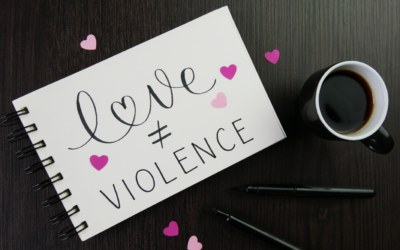Managing our emotions, thoughts, and relationships can be tricky. Our minds are complex, and getting tangled up in our thoughts and feelings can sometimes sneak up on us. Luckily, a type of therapy called Dialectical Behavior Therapy (DBT) helps people learn how to navigate this complexity. Developed in the late 1980s by therapist Dr. Marsha Linehan, DBT can be effective in teaching people new skills to manage their emotional and mental health. In this article, we’ll take a closer look at what DBT is, how it works, and how you can use these skills in your daily life to feel better overall.
In the bustling landscape of everyday life, Sarah was caught in a whirlwind of emotions. Juggling a demanding job, personal relationships, and the constant ebb and flow of life’s uncertainties, she often felt like a tightrope walker without a safety net. Anxiety gripped her, and the weight of her emotions threatened to pull her into a downward spiral.
One day, Sarah was dealing with several work emails on her phone while also being preoccupied with personal issues. She was standing in a busy subway station when she suddenly felt a rush of intense emotions that overwhelmed her. At that moment, she realized she needed to find a way to regain control and navigate through the storm of emotions she was experiencing.
Have you ever felt lost in your own thoughts and emotions? If the answer is yes, you’re not alone. Many people struggle with accepting their emotions while trying to make positive changes in their lives. That’s where Dialectical Behavior Therapy (DBT) comes in as a ray of hope. Developed by Dr. Marsha Linehan, DBT is a therapeutic method that helps people find a way to navigate their emotions and thoughts. Dr. Linehan believed that accepting ourselves is just as important as personal growth, and DBT can help us do both. For instance, Sarah, who was going through a rough patch, found solace in DBT and learned to accept herself while working on positive changes.
It’s important to understand that a lot of people struggle with mental health issues. Mental health disorders can be make life more difficult and DBT has been helpful in managing symptoms while also exploring ways to prevent their escalation. Borderline Personality Disorder (BPD) is even more challenging, but there’s some good news. An article published by the Mental Health Clinician, a journal published by the American Association of Psychiatric Pharmacists, support the use of DBT in treatment of BPD as the only evidence supported treatment for the improvement of BPD and BPD symptoms. It reduces self-harm, prevents suicide attempts, and encourages commitment to treatment. So, if you or someone you know is struggling, DBT could be a life-changing option.
Understanding the Dialectics
Dr. Linehan’s therapy approach, DBT, is based on the idea that we all have inner conflicts and contradictions. This therapy helps people to recognize and understand these opposing thoughts and feelings and to learn to accept them as a natural part of who they are. Individuals can gain greater self-awareness and self-acceptance by acknowledging and embracing these contradictions. This can be a transformative journey towards a more peaceful and fulfilling life.
DBT encourages individuals to balance self-acceptance with a commitment to personal growth. Rather than separating acceptance and change as solely positive or negative forces, DBT emphasizes how they work together. By exploring and appreciating all aspects of one’s identity, including strengths and areas for growth, individuals can achieve a healthier balance in their lives.
DBT allows people to explore their inner selves without being self-critical. It helps people recognize their internal conflicts and encourages them to commit to positive change. DBT can empower people to lead more fulfilling and authentic lives.
Statistics on Mental Health and DBT Efficacy
Let’s begin our journey into DBT by acknowledging the stark statistics surrounding mental health. According to the research data, over 264 million people globally struggle with depression, which is a leading cause of disability. Anxiety disorders affect approximately 284 million people worldwide, making it more urgent to find effective therapeutic interventions.
Borderline Personality Disorder (BPD) is a mental health condition that can cause a lot of distress, including symptoms of anxiety and depression. However, Dialectical Behavior Therapy (DBT), backed by significant research, offers new hope in the treatment of mental health disorders. Psychological Medicine published a comprehensive review of how DBT can effectively reduce self-harm, prevent suicide attempts, and help more people stick with treatment. This means that there is hope for those struggling with BPD and that DBT can be a real game-changer in assisting people to feel better and live happier, healthier lives.
Components of DBT: An Intricate Symphony
Mindfulness
Mindfulness is an important aspect of Dialectical Behavior Therapy (DBT) that involves being fully present in the moment without any judgment. It helps individuals in developing emotional regulation and interpersonal effectiveness. In DBT, mindfulness is the practice of being aware of one’s thoughts, feelings, and sensations without judgment. By practicing mindfulness, one can achieve a sense of calmness and better manage their emotions in difficult situations.
Key elements of mindfulness in DBT include:
Observing
Mindful observing is being wholly present and involved in the present moment. It involves observing our thoughts, feelings, physical sensations, and environment without bias or reaction. By being curious and open to our experiences, we can fully engage in the present moment and better understand ourselves and the world around us.
Describing
In Dialectical Behavior Therapy (DBT), “describing” is a mindfulness technique that helps you express your experiences clearly and impartially. This approach encourages you to use precise language, stay focused on the present moment, and avoid jumping to conclusions or making judgments. By practicing describing, you can better understand your thoughts and emotions, leading to better control of your feelings and more effective responses to difficult situations.
Participating
Participating means being fully engaged and present in whatever you’re doing without getting sidetracked by other thoughts or distractions. This means focusing on one thing at a time, being aware of your surroundings, and not judging yourself or others. By practicing participation, you can learn to handle challenges with more focus and intention, which can help you regulate your emotions and live a more fulfilling life.
Being Non-Judgmental
DBT places a strong emphasis on mindfulness as a way to cultivate self-awareness and emotional regulation. One of the key components of mindfulness practice is learning to observe one’s own thoughts and feelings without judging them as positive or negative. This non-judgmental stance allows individuals to understand their inner experience and develop greater acceptance and compassion towards themselves.
Being One-Mindful
Sometimes, our minds can be cluttered with various thoughts and tasks, leading to feeling overwhelmed. One way to address this problem is by cultivating the skill of one-mindfulness. This means focusing all our attention on the current task or thought without letting our minds wander to other distractions. By doing so, we can better control our thoughts and emotions, leading to a sense of calm and inner peace.
Distress Tolerance
Distress tolerance is a skill that can help us deal with difficult emotions and situations without doing anything harmful or impulsive. It’s an important tool to help us get through tough times without worsening things. In a type of therapy called Dialectical Behavior Therapy (DBT), they teach people how to use this skill to manage situations that feel really overwhelming and hard to handle. By learning to tolerate distress, people can avoid doing things that might hurt themselves or others and instead fhttps://perrymhs.com/what-to-expect/ind healthier ways to manage their feelings and make decisions that promote their well-being.
Key components of distress tolerance in DBT include:
Radical Acceptance
Accepting reality as it is, without trying to change or judge it, can be a powerful tool to help us find peace in difficult situations. This practice is known as radical acceptance. When we accept the things we cannot control, we can focus our energy on what we can control, which can help reduce stress and anxiety. Radical acceptance can also help us become more self-aware and emotionally resilient. Ultimately, this practice can transform the way we live, allowing us to be more present and free from the burden of trying to control everything around us.
Self-Soothing
Everyone needs to take care of their mental and emotional health, especially during difficult times. Doing things that make you feel calm and comfortable can help you feel better and more relaxed. Taking a warm bath, listening to soothing music, or practicing mindfulness are some examples of activities that can help you feel peaceful and relaxed. By making these activities a regular part of your routine, you can learn to manage stress better and improve your overall well-being. Remember, there is always time to start caring for yourself in these simple ways.
Distract with Wise Mind
Wise Mind is a powerful Dialectical Behavior Therapy (DBT) tool that helps us balance our emotions and rational thinking. Think of it as finding a peaceful place to escape when things get overwhelming. It’s like listening to calming music or getting lost in a good book to take a break from stress. This can be especially helpful when we’re feeling overwhelmed at work. Stepping outside to enjoy nature or taking a break to do something we enjoy can help us feel more relaxed and balanced. Wise Mind is a way to care for ourselves and find harmony and balance during life’s challenges.
Improve the Moment
When life throws us challenging situations, it’s easy to get overwhelmed and feel negative. But instead of dwelling on the past or worrying about the future, we can make things easier by focusing on the present moment. This can involve finding ways to make the situation more bearable, such as seeking help or support from friends and family or doing things that make us happy, like exercising, pursuing hobbies, or spending time with loved ones. By being mindful of our thoughts and feelings, we can develop resilience and inner strength, which helps us cope with life’s ups and downs more easily and positively.
Emotion Regulation
In Dialectical Behavior Therapy (DBT), emotional regulation is a skill that helps people better understand and manage their emotions. It involves learning to recognize and accept emotions, identify what causes them, and find effective ways to deal with them. By learning emotional regulation, individuals can improve their emotional stability and enhance their overall well-being.
Here’s an overview of the emotional regulation skill within DBT:
Identifying and Labeling Emotions
The first step to managing our emotions is to become more aware of them. We need to pay attention to how we feel, good and bad, and learn to recognize and name our emotions accurately. By accepting our emotions without judging ourselves, we can understand how they affect our thoughts and behavior. Learning to control our emotions helps us deal better with difficult situations. We can improve our emotional intelligence and learn to manage our emotions more effectively with practice.
Understanding the Function of Emotions
Our emotions are necessary signals that tell us about our thoughts, needs, and reactions to the world around us. They help us communicate with ourselves and others and motivate us to take action. This involves understanding what our emotions are trying to tell us and using techniques like mindfulness and positive self-talk to manage them.
Opposite Action
When we experience intense emotions, it can be hard to know how to react in a helpful way. The opposite action skill is a useful tool that can help us respond deliberately and intentionally, even when our emotions tell us to do something else. For instance, if we’re sad and want to be alone, the opposite action would be reaching out to others for support instead. Practicing opposite actions can help us become more emotionally resilient and make better choices when things get tough.
Building Mastery
Engaging in different activities that give you a sense of achievement and help you feel capable can have a big impact on your mental and emotional health. By doing small tasks or hobbies that make you happy and give you a sense of fulfillment, you can improve your self-esteem and create a positive emotional base that will make it easier to deal with life’s difficulties.
Problem-Solving
Dealing with life challenges can be tough, but it’s something we all face at some point. DBT offers a helpful way of approaching these challenges using a structured and systematic approach called problem-solving. The process involves defining the issue, setting achievable goals, thinking of possible solutions, weighing the pros and cons of each option, choosing a realistic solution, implementing it, and evaluating the results. DBT encourages flexibility and ongoing adjustments in problem-solving strategies to help people navigate difficulties effectively and make positive changes in their lives.
PLEASE Skills
The PLEASE skill is a valuable part of DBT. It stands for several things that can help with emotional well-being: taking care of physical health, eating in a balanced way, avoiding things that can change moods (like drugs or alcohol), getting enough sleep, and exercising regularly. By doing these things, people can feel more stable, better able to handle tough situations, and more able to care for themselves.
ABC Skills
The ABC skill in Dialectical Behavior Therapy is a tool that involves three steps: Accumulating positive emotions (A), Building mastery (B), and Coping ahead (C). By doing activities that make you feel good, achieving goals to build confidence, and planning for tough times, you can improve your ability to handle stress and overcome challenges.
Interpersonal Effectiveness
Interpersonal effectiveness is a set of skills designed to help individuals navigate social interactions and relationships more effectively. These skills benefit individuals who struggle with assertiveness, setting boundaries, and maintaining positive connections with others. The interpersonal effectiveness module in DBT comprises specific skills to enhance communication, build healthy relationships, and achieve personal goals in social situations.
Here are key components of interpersonal effectiveness in DBT:
Objective Effectiveness
This skill is all about achieving your goals in a specific situation. It involves being clear about what you want, respecting yourself, and taking the right actions to get desired results. This can include speaking up for yourself, communicating clearly, and negotiating effectively.
Relationship Effectiveness
To have fulfilling and happy relationships, it’s important to focus on being effective in them. This means thinking about what you want and making sure your relationships are healthy and positive. The key to success is finding a balance between what you want, listening to others, and finding solutions that work for everyone.
Self-Respect Effectiveness
Maintaining self-respect and personal boundaries while interacting with others is important for healthy relationships in our personal and professional lives. This skill involves being assertive while still showing respect for ourselves and others. It means communicating our needs clearly, saying “no” when necessary without feeling guilty, and avoiding actions that compromise our values or well-being. It helps us establish healthy boundaries, which are crucial for maintaining healthy relationships.
Application in Therapy Sessions: The Dialectical Dance
Individual Therapy
During individual therapy sessions, a person works directly with their therapist to tackle specific challenges and behaviors. The therapist helps them apply practical skills to everyday situations, navigate obstacles, and work toward their personal goals. This type of therapy can effectively improve one’s overall well-being.
Group Skills Training
Group skills training is a crucial component of DBT. These groups typically meet weekly and cover the four main DBT skills. Group sessions provide a structured environment for learning and practicing skills, and participants often engage in discussions, role-playing, and exercises to reinforce their understanding.
Homework Assignments
Therapy sessions can be very helpful, but the real work happens outside them. Clients are often given homework assignments to practice the skills they learn in therapy. These assignments include mindfulness exercises, handling difficult situations, or writing about their emotions. This homework lets clients apply what they learn in real-life situations and make lasting changes.
Targeting Behavior Patterns
If you are struggling with certain behavioral patterns causing problems in their lives, Dialectical Behavior Therapy can be beneficial for people with conditions like Borderline Personality Disorder. During DBT, therapists work with their clients to recognize and improve specific behaviors. The therapy takes a balanced approach that involves accepting the current moment while also striving for a better future.
Validation and Support
Therapy sessions play a significant role in helping individuals overcome their struggles by providing them with a safe space to open up and express their emotions. Therapists use an empathetic approach, offering unwavering support and acknowledging their clients’ experiences and efforts.
Conclusion
Life can be a complicated journey full of ups and downs; sometimes, it’s hard to know how to handle our emotions. That’s where Dialectical Behavior Therapy (DBT) comes in. DBT is like a beautiful symphony that can help guide us toward a more balanced, self-accepting, and fulfilling life. In today’s world, many people struggle with their mental health, and DBT can be a powerful tool to help us become more resilient and experience life more deeply. By learning about DBT, we can gain practical skills to help us navigate life’s challenges and find more joy and meaning in our experiences. So, let’s embrace the dialectics and let the beautiful music of well-being begin!










